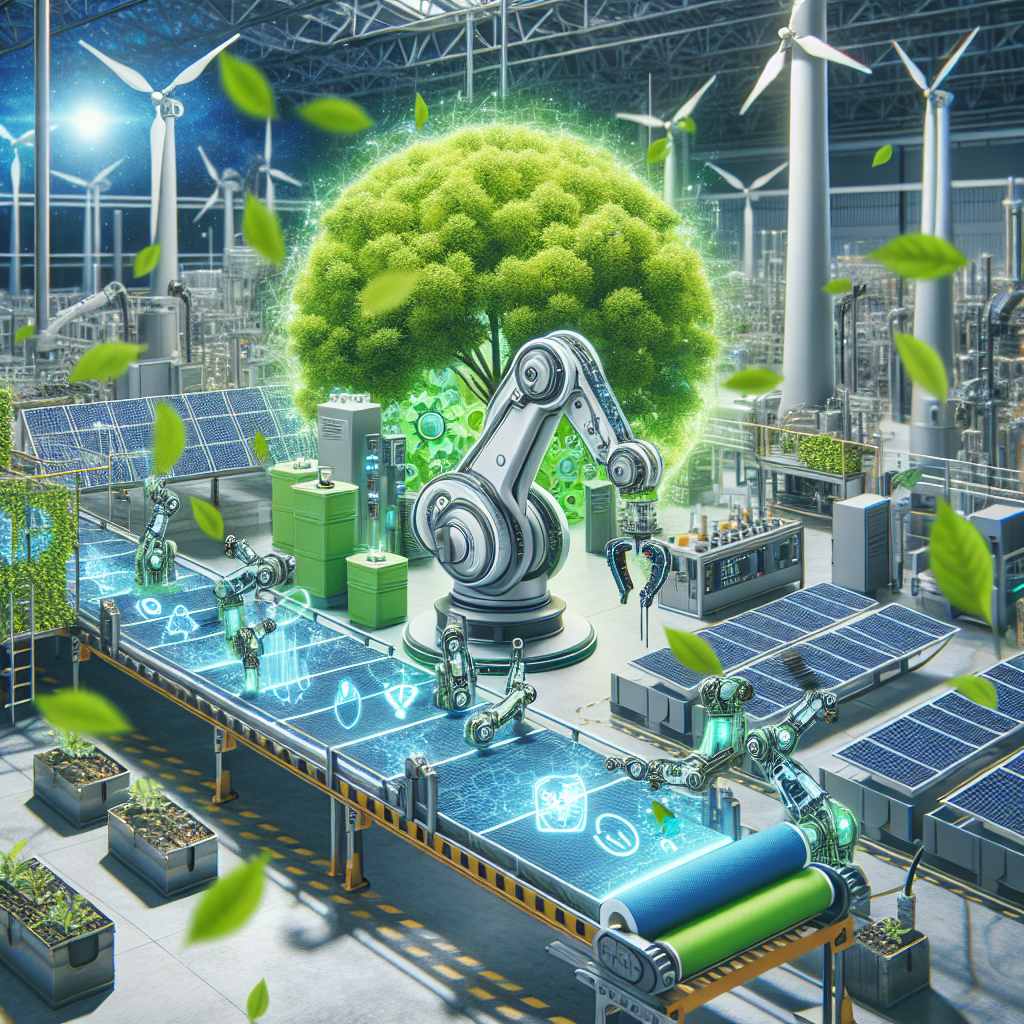Artificial intelligence (AI) has been revolutionizing various industries, and manufacturing is no exception. One of the key areas where AI has had a significant impact is in improving energy efficiency in manufacturing processes. Energy efficiency is crucial for manufacturers as it not only helps reduce operating costs but also contributes to sustainability goals by lowering carbon emissions. In this article, we will explore how AI is being used to enhance energy efficiency in manufacturing and its benefits.
AI in Energy Efficiency
AI technologies such as machine learning, deep learning, and predictive analytics are being utilized to optimize energy consumption in manufacturing plants. These technologies enable manufacturers to analyze vast amounts of data in real-time, identify patterns, and make informed decisions to improve energy efficiency.
One of the main ways AI is improving energy efficiency in manufacturing is through predictive maintenance. By using AI-powered predictive analytics, manufacturers can predict when equipment is likely to fail and proactively schedule maintenance before a breakdown occurs. This not only reduces downtime but also helps optimize energy usage by ensuring equipment is running at peak efficiency.
AI is also being used to optimize production schedules based on energy consumption levels. By analyzing historical data and real-time energy usage, AI algorithms can adjust production schedules to minimize energy costs during peak demand periods or when electricity prices are high. This helps manufacturers save money and reduce their carbon footprint.
Furthermore, AI-enabled energy management systems can monitor and control energy usage in real-time. These systems can automatically adjust equipment settings, lighting, and HVAC systems to optimize energy usage based on production requirements and external factors such as weather conditions. This level of automation ensures that energy is used efficiently throughout the manufacturing process.
Benefits of AI in Energy Efficiency
There are several benefits of using AI to improve energy efficiency in manufacturing:
1. Cost savings: By optimizing energy consumption, manufacturers can reduce their utility bills and operating costs. AI-enabled energy management systems can identify inefficiencies and recommend cost-saving measures, such as adjusting production schedules or upgrading equipment.
2. Sustainability: Improving energy efficiency helps reduce carbon emissions and minimize the environmental impact of manufacturing operations. This is crucial for meeting sustainability goals and complying with regulations related to greenhouse gas emissions.
3. Increased productivity: AI-powered predictive maintenance reduces downtime by preventing equipment failures, ensuring that production runs smoothly. This leads to increased productivity and higher output levels, ultimately improving the bottom line.
4. Competitive advantage: Manufacturers that embrace AI technologies for energy efficiency gain a competitive edge in the market. By reducing costs, improving sustainability, and increasing productivity, they can deliver products more efficiently and effectively than their competitors.
FAQs
Q: How does AI help manufacturers reduce energy costs?
A: AI technologies such as predictive analytics, machine learning, and deep learning can analyze energy usage data and identify patterns to optimize energy consumption. By predicting equipment failures, adjusting production schedules, and automating energy management, manufacturers can reduce energy costs significantly.
Q: Can AI improve sustainability in manufacturing?
A: Yes, AI can help manufacturers improve sustainability by optimizing energy usage, reducing carbon emissions, and minimizing environmental impact. By using AI-enabled energy management systems, manufacturers can monitor and control energy consumption in real-time to meet sustainability goals and comply with regulations.
Q: What are the challenges of implementing AI for energy efficiency in manufacturing?
A: One of the main challenges of implementing AI for energy efficiency in manufacturing is the initial investment required for AI technologies and infrastructure. Manufacturers also need to ensure that their workforce is trained to use AI tools effectively and that data privacy and security concerns are addressed.
Q: How can manufacturers get started with AI for energy efficiency?
A: Manufacturers can start by conducting an energy audit to identify areas for improvement and set energy efficiency goals. They can then explore AI technologies that can help optimize energy consumption, such as predictive maintenance, energy management systems, and production scheduling algorithms. Collaborating with AI vendors and consultants can also help manufacturers implement AI solutions effectively.

